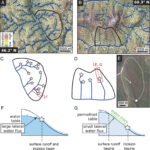The agricultural industry is undergoing a significant transformation away from the traditional method of mono-cropping, where large areas of land are dedicated to growing a single crop. Paul Makube, senior agricultural economist at FNB, asserts that diversifying crops is now crucial for sustainable crop production. He emphasizes that this shift is not merely a passing trend but an urgent response to the numerous challenges faced by modern agriculture.
To enhance productivity and sustainability, Makube explains that implementing crop rotation and using green fertilizers is necessary to address the negative effects of mono-cropping on soil health. By alternating crops, farmers can maintain the fertility and structure of the soil, ensuring its ability to support agricultural activities for current and future crop yields. Makube also highlights the economic benefits of crop diversification, comparing it to the strategy of portfolio diversification for investors to minimize risk. In a climate-challenged and water-scarce environment like South Africa, diversification is not just a strategy but a necessity. The increasing unpredictability of weather patterns, exacerbated by climate change, demands a rapid shift to a more resilient agricultural model.
According to Makube, crop diversification also plays a crucial role in mitigating risks in modern farming. This risk can be optimized through localized and geographically dispersed diversification approaches. It involves not only cultivating different crops on the same piece of land but also planting across different regions when possible. Although geographic diversification may pose challenges for individual farmers, Makube suggests that collaboration with farmers in other regions can effectively spread out the risks associated with rainfall variability, diseases, and pests.
Regenerative agriculture, which focuses on restoring ecosystems through practices like crop diversification, has gained momentum in many parts of South Africa in recent years. Makube emphasizes its importance in viewing farming as not just a business but also as the stewardship of the land for future generations. He believes that regenerative agriculture is the next phase of sustainable farming in South Africa and is receiving increasing support from banks and other financiers due to its potential to rejuvenate soils, preserve environments and ecosystems, and uplift communities.
Makube concludes that the shift to diversified cropping systems and regenerative farming is not a passing trend but a fundamental change driven by the need for environmental sustainability and economic resilience. He emphasizes the importance of all farmers embracing these practices as the only sure path to a secure and sustainable food future.




